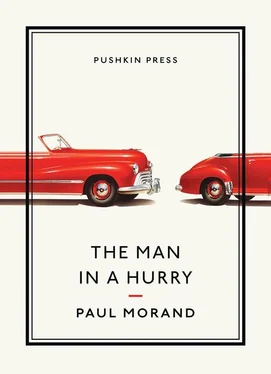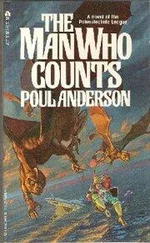“I can’t go on automatically, like a doddering old fool, doing things that I won’t see completed. How shall I fill my time?” he asked himself in a loud voice.
Ever since the previous day he had constantly been talking out loud, as if to disturb the silence before it became eternal, and also so as to remain on good terms with this outmoded self who would soon have no voice at all. When words are very solemn, one is inclined to say them aloud; and for Pierre, nothing could be light-hearted any more.
“I was a man of action,” he said. “What shall I do now?”
He forced himself to review the occupations that were still possible. For obvious reasons, almost everything was precluded: how could he do sport, go on journeys, take trips, do any gardening, do business, make plans? Even reading, for other people a relaxation, an education, a time for reflection and daydreaming, was an acute form of action for him, because he read so that he could take part wholeheartedly in the most spirited exploits of great sea captains, explorers, adventurers, his heroes.
“Action presupposes the future before all else. Regencrantz has wiped out my future. The future was my life. How shall I live without life?”
He felt himself lost in a foreign land, a land without clocks, a land whose language he knew nothing of because no one speaks there in hours, minutes and seconds, a land in which present-day money no longer has any currency, where the words “precede”, “follow”, “early”, “late” no longer have any meaning. He seemed to have lost all depth. Something vital, something essential had deserted him.
“It’s funny,” he said dreamily, “I have the feeling that I’ve been operated on by myself.”
Not for a moment did he think of looking after himself in the way the doctor had prescribed. Whether he died immediately, in a month, in three months, what did it matter? Even yesterday, the future was for him an infinite space in which his fearless momentum was driving him beyond all weariness. Placing a limit on infinity was to deny it and to instantly destroy the patient.
“I am in a void in which I recognize nothing. I’ve been marooned in mid-ocean, without any possible rescue, on a rubber mattress…”
Pierre was amazed that he did not feel the distress of someone who is shipwrecked. An entirely new feeling of apathy came over him and caused his eyelids to droop. He dozed off.
He had a dream: he was dead and he was keeping watch over himself, astonished to see a Pierre Niox who no longer moved. It was appalling, this body solidified by the disappearance of life, this man in a hurry suddenly pinned, weighed down for all eternity. With a knife, he opened the veins of this corpse and saw that no blood flowed. In one of those symbolic puns that are the wordplay of dreams, Pierre murmured:
“The man who was squeezed for time really has been squeezed to the last drop!”
Rooted to the spot, he contemplated his funeral mask, his wordless mouth, his soft, pasty flesh and that inner smile, half mocking, half blissful, that the dead have. That expectation, so full of hope, which had been his life’s true companion, had deserted him. His speed of motion had forsaken him… And nobody would ever know how quick he had been!
“How are you feeling?” Pierre asked his double, and the latter responded without opening his plump white, swollen eyelids, which looked like poached eggs.
“Well. Still much calmer.”
Pierre awoke with a start and remembered his dream. It was true that nobody would ever know how quickly he had been able to move. No one would ever be grateful to him for the efforts he had made always to be more dextrous and more nimble. He would watch enviously as flowers were laid on the tombs of the great men who were his neighbours. “I, too, was a hero in a way, a sunny and invigorating man,” he would cry out, “and one who has cracked the whip a good deal to bring nature out of her rut! I, too, had some merit!” But they would pass by without hearing him.
He had lived too quickly to be noticed.
The telephone rang for a very long while, so long that Chantepie himself heard it and rushed in:
“Monsieur is not replying to the phone?”
“No. Switch it off. Tell the concierge that I’m away to any callers. I don’t want to see anyone. You yourself, Chantepie, make yourself as invisible as possible.”
Pierre remained alone in the empty apartment, alone with a lucid intelligence sustained by a sick heart in which the blood that normally gushed from left to right only came in dribs and drabs. All the time, he could see on the wall, as he had on Regencrantz’s screen, a large, dense aorta, petrified and almost rock-like. All he could feel in his body was his ever-watchful heart, balanced precariously on its tip, like a spinning top. For how long would the little oscillating movement continue to function?
Every evening, after going to bed, lying in the silent house as he did when he used to wait in vain for Hedwige, Pierre vaguely wondered why he felt shattered. What treasure had he been robbed of? Yes, it was true that due to swift action, due to the hasty procedure, carried out with more devastating speed than any of his own efforts, something had ended the moment Regencrantz’s head had nodded, something that was no doubt his raison d’être. Pierre was just beginning to sense that that indefinable thing was Time, his beloved Time, which was deserting him.
He owed everything to time: his originality, his verticality, his expansiveness. In losing that quantifiable ether that he strode through in buoyant, joyful leaps, he had lost everything.
“Now,” he told himself, “begins the harsh ordeal of surviving, of persevering, of waiting. Me, waiting!”
Over the following evenings, Pierre did not go to bed, preferring to spend the night in an armchair. He did not dare lie down for fear of hearing his heart thumping; as soon as he laid his ear on the pillow, he could nevertheless detect, in the silence of the night, that rumble of thunder, scarcely audible though it was, that terrified him. He remembered the last moments of old Boisrosé, with his mouth open like a fish at the bottom of a boat and that halting breathing of a dying man; the Mas Vieux clearly did not bring happiness.
The thirsty runner, who swallowed up the hours like an ogre and drank up the miles as the earth drinks water, had already come to a stop. He had been blamed enough for being mechanical! With the machinery now broken, the car in the ditch, the motor reduced to silence, Pierre could have walked through a countryside full of gentle creatures and left behind these petty squabbles with human beings that his weaknesses had landed him in. But his fading strength no longer provided him with the means.
Rather than regret a happiness he had never experienced, Pierre might have felt remorse for having sought his sensual pleasures in speed and for having mowed down everything in his way had not merciful fate made him the gift of a child. In the hands of this creature still to be born, he would leave his debit balance and the task of paying his debts to a world that from now on would continue without him.
Once upon a time Pierre used to go to bed without going to sleep; now he went to sleep without going to bed. Sitting up all night, his eyes open, he watched the calm intensifying.
Each morning he repeated the same activities; he washed very slowly, contemplating with disinterest his dumb-bells, which were the same shape as the globe is on the opening pages of atlases, in just the same way as he considered the world itself, without any desire to lift them up any more. Then he would go out and walk along the banks of the Seine at a strolling pace, at times when there are no pensioners around, times when you meet no one apart from fishermen with rods and old men wearing capes, their white silk scarves knotted beneath their white beards, and who look after small children in garden squares. At the age of thirty-five, he was experiencing the De Senectute and he was walking about like an old man raising his gaze to look at the houses.
Читать дальше












